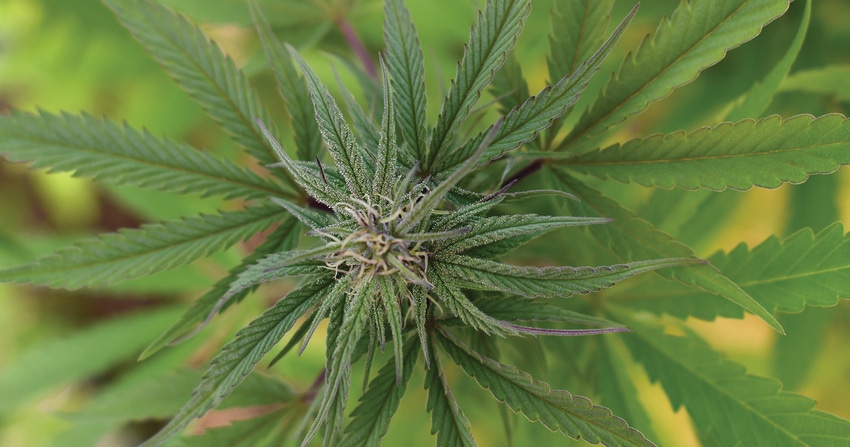
It's been a rough start for growers in the hemp industry since the 2018 Farm Bill authorized the production of hemp and removed hemp and hemp seeds from the Drug Enforcement Administration’s schedule of Controlled Substances.
Ashley Broussard and Jarod Brackin, owners of Fleur De Vie Farms in Livingston, La., have had a number of challenges, but continue to push forward, looking for ways to improve their production and boost their operation.
Broussard and Brackin entered the hemp industry, with the guidance of Broussard's father, and have been improving their skills through trial and error ever since. They began farming hemp like a traditional row crop, on six-inch rows starting with roughly 2,000-2,500 plants.
Everything went well, for a while. The plants were looking healthy until a rainstorm came through and flooded the rows faster than it could drain. The roots drowned in the pooling water.
After losing their entire crop, they decided to control the environment using a greenhouse.
The greenhouse allows them to control the watering, humidity levels, airflow, temperature and amount of light the plants receive.
Humidity
“Our main challenge in Louisiana is humidity,” Braken said. “Bud rot, powdery mildew, and southern blight can wipe a crop out in no time.
"A greenhouse is a must for high-humidity environments like the South. Greenhouses equipped with remote monitoring hygrometers and thermometers with push notifications can be extremely useful in providing growers a better idea of when to spray and water.”
Unlike planting outdoors, the amount of light the plants receive can be controlled. The plants can be maintained in both vegetative and flowering stages, allowing for a more controlled harvest, when outdoor plants can only be harvested one time a year.
Growing in a greenhouse has drastically improved their operation and allowed for better control of the growing process. Fleur De Vie Farms utilizes natural methods of controlling pests and diseases.
“We would rather see natural alternatives not only because they are the healthy choice for humans, but also for the quality of the soil,” Broussard said. “In terms of soil health and beneficial microorganisms, organic farming is certainly not the easiest kind of farming, but it is the best for environmental continuity and sustainability.”
Several varieties are grown including Suver Haze, Special Sauce, and Lifter. Most of the varieties available have been bred and acclimated to dryer climates.
“I would like to see more breeding in Louisiana,” Brackin said. “Most strains we have grown come from Oregon. It could take several generations to get those same seed genetics acclimated to Louisiana and the South in general. When choosing strains, I recommend people start by looking at the mold-resistant types (humidity-resistant strains).”
Challenges
The hemp industry has several challenges including licensing, excessive fees, and marketing censorship that have prevented growers from expanding their business, according to Brackin.
“There is plenty of room for improvement in the marketing of hemp products,” Brackin said. “Alcohol is promoted during the Superbowl while the display of hemp plants is censured.”
The list of people involved in the hemp industry is shrinking since the program’s inception, according to information published by the Louisiana Department of Agriculture and Forestry, while the demand for hemp and cannabidiol or CBD products remains strong.
Shops like reLeaf Therapy CBD, owned and operated by William Marine, continue to provide the community with hemp and CBD products.
“Today we have over 25 products that are certified organic with the U.S. Department of Agriculture,” Marine said.
Brakin and Broussard are hopeful that the plants they grow can positively impact people worldwide. People in the industry are aware of the challenges and continue to look for methods to overcome them.
Don't give up
Brackin advised patience regarding successful hemp production.
“Don’t be afraid of failure and don’t give up,” Brackin said. “When starting off it’s best to buy used equipment and learn to fix it because the cost adds up fast.
"I bartered for the greenhouse by making a website for a larger hemp farmer. Generally, farmers help each other within the community. You need a support system early in the game, especially when it comes to financing. Use what you know. If you don't have money, trade your knowledge or labor to get started. Don't let the lack of funding hold you back. Think outside the box and go network."
He is also advocating for a growing hemp farmer community and co-op for Louisiana.
While the hemp industry faces challenges, Brackin and Broussard said it is headed in a positive direction.
About the Author(s)
You May Also Like




